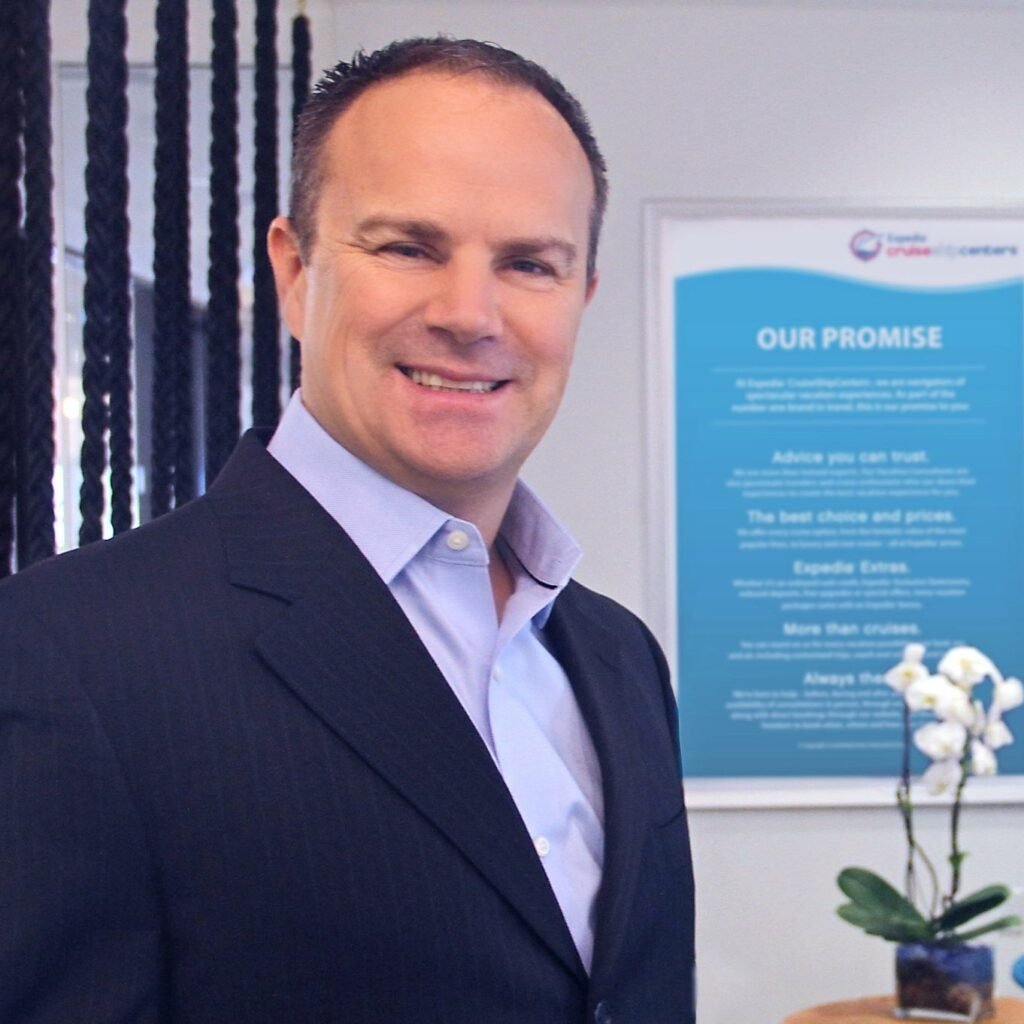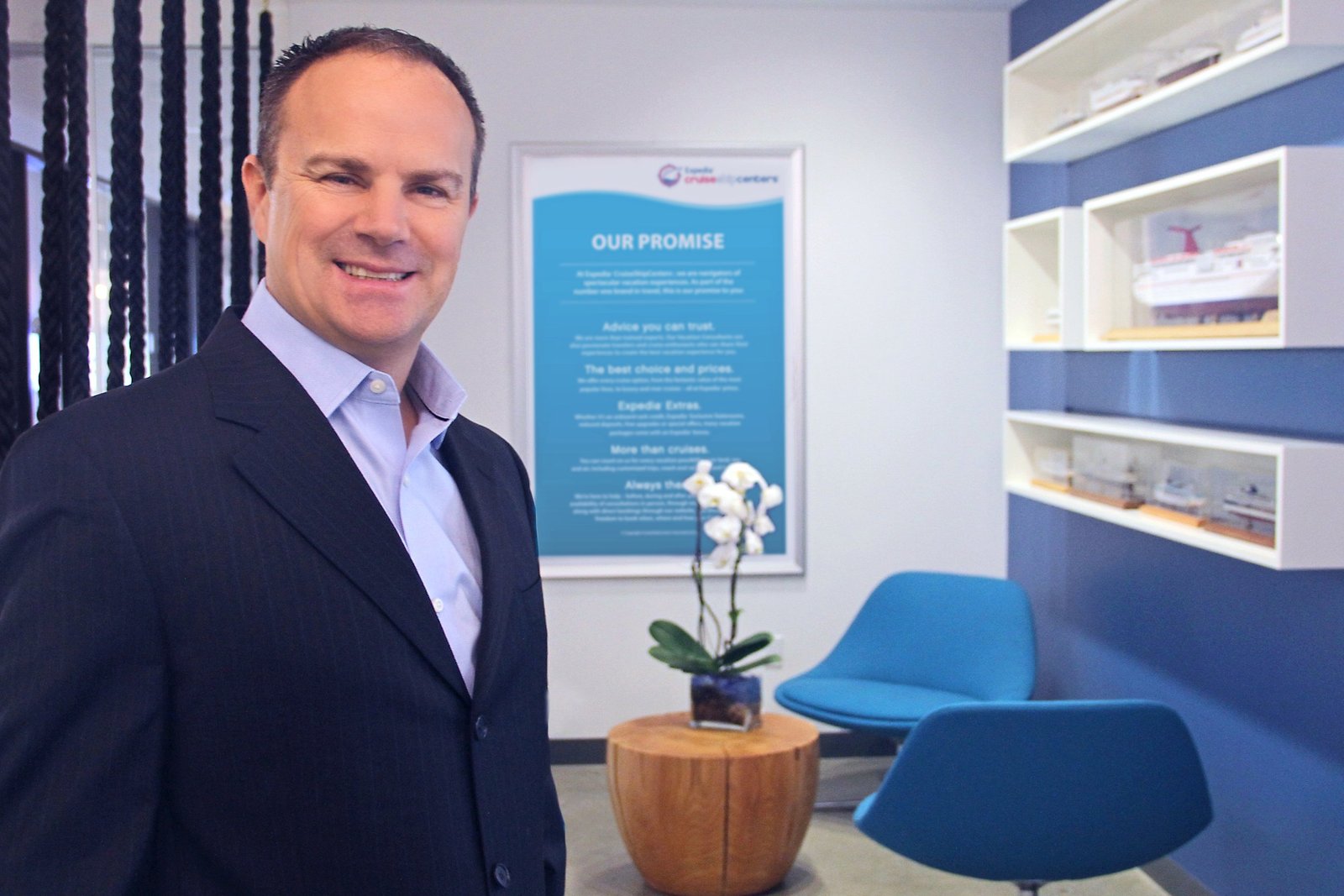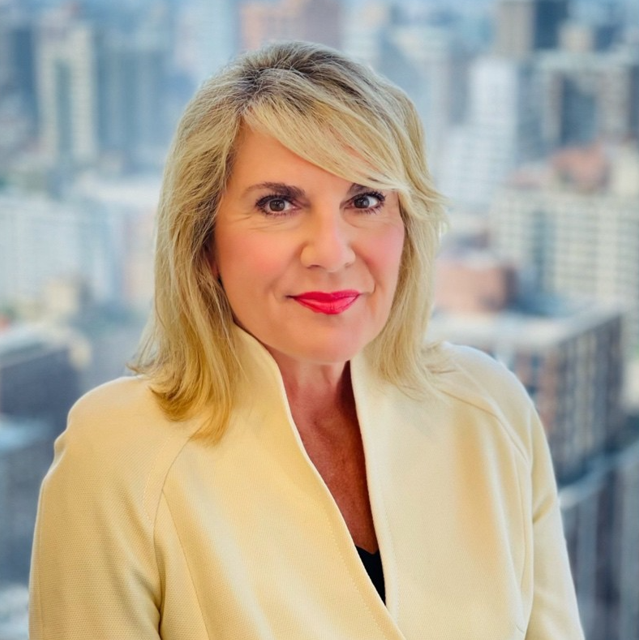Several years ago, I interviewed Matthew Eichhorst, President of Expedia Cruises, in an interview originally published in Thrive Global. Here is an excerpt from our conversation:
Adam: What is something about you that would surprise people?
Matthew: I’m a blue-collar guy in a white-collar job. I got my taste for entrepreneurship cleaning and then installing swimming pools, and my dad was a longshoreman for 42 years. While I’ve since transitioned from installing swimming pools to managing companies, I haven’t strayed far from my roots. Once I’m out of the office and I’ve shrugged out of the white collar, there’s nothing I’d enjoy more than cruising around on my Harley or exploring new terrain on my dirt bike with my son.
Adam: How did you get here? What failures, setbacks, or challenges have been most instrumental to your growth?
Matthew: My journey towards becoming President of Expedia CruiseShipCenters was an indirect one. I was president of a tech company, and Expedia CruiseShipCenters was a client. I had built a good relationship with Michael Drever, the company’s founder, and after working together for several years, he contracted me to help accelerate and structure the business for growth. As I learned more about the business and the cruise industry, I realized that this was something I wanted to be a part of. In a few years I purchased equity in the business, and shortly thereafter I was appointed president.
A setback that was instrumental to my growth happened early on in my career, in which the business had an overreliance on one customer. While loyal and reliable customers are certainly the lifeblood of any business in that you’ll enjoy predictable cash flow and secure a platform for growth, I learned that for your business to be fiscally responsible, you need to have strategic diversification. At the end of the day, we aren’t able to control the factors that influence our customers, and if our fortunes are tied to theirs, whatever problems they experience will ultimately affect us as well. While I had to learn this the hard way, now it has become second nature for me to think strategically and to make decisions that will enable the business to reduce risk and boost sales growth at the same time, protecting long term sustainability.
Adam: In your experience, what are the defining qualities of an effective leader? How can leaders and aspiring leaders take their leadership skills to the next level?
Matthew: In my experience, integrity, the ability to inspire others, and vision are defining qualities of an effective leader. A strong leader will choose to do what’s right rather than what’s expected, to put in motion actions that will inspire others to do more and become more and have a clear idea of what they want to accomplish, where they are going, and how they intend to get there.
Leaders and aspiring leaders can take their leadership skills to the next level by fueling their curiosity and their desire to constantly learn and grow. The world around us is constantly changing and evolving, and to be able to lead effectively, we need to do more than just stay abreast of current trends – we need to stay ahead of current trends. The only way to do this is to keep learning. Never stop asking questions, never stop being curious, and never stop striving to be better.
Adam: What are your three best tips applicable to entrepreneurs, executives, and civic leaders?
Matthew: Lead by Example: Showing, rather than telling, sends a powerful message of who you are and what your expectations are, and if you set an example, those around you will start to follow. If you want your employees to be punctual, make it a point to be on time for every meeting. If you want your team to be hard workers, demonstrate that you don’t shy away from getting your hands dirty and putting in the long hours if necessary to get the job done. An effective leader is able to practice what they preach, and by doing so, they earn the loyalty and respect of those around them.
Matthew: Learn How to Communicate: To lead effectively, you need to be heard and understood, and equally important is that you need to be able to listen to those around you. Effective communication is a two-way street, and a good leader is able to express their ideas and strategies clearly and persuasively, while also listening to the concerns and feedback of others with an open mind. Through clear communication, goals and visions can be aligned which allow action to be taken collectively and powerfully.
Matthew: Make Self-Assessment a Regular Habit: Leadership is a continually evolving process, and to be a better leader, it’s important to regularly assess your skills, your opportunities for growth, and your management style. By assessing yourself regularly, you’re able to keep track of your goals, and you’ll get a better understanding of what’s working for you and what isn’t so you can start to make changes to stay ahead of the game. In doing this, you’ll be developing a leadership style that truly fits you best.
Adam: What is the single best piece of advice you ever received?
Matthew: The best piece of advice I’ve ever received came from Aman Bhutani, the President for Brand Expedia Group, who encouraged all of us at Expedia to become better versions of ourselves by making something one percent better from the day before. The notion of taking small, incremental steps every day really resonated with me, because it’s applicable to both business and personal growth. To grow your business, make that one extra call to a potential customer. To improve your health, that those extra five minutes out of your day to go for a quick stroll outside. While these small actions don’t sound like much if you keep this up every day, the improvements will start compounding, and that will gradually lead to the change you want. In time, you’ll start to see improvements in different areas of your life, and all it takes is a commitment to become just a little bit better than you were yesterday.
Adam: How can anyone pay it forward?
Matthew: Many people have been instrumental in helping me along my professional journey over the last 40 years, and if there is one thing that everyone should be doing to pay it forward, it would be to take the time to help other people. You can consider becoming someone’s mentor as there are always aspiring young leaders who could benefit from your knowledge and experience, or you can simply say “yes” when someone seeks your advice or help in any way, shape, or form. How you define “helping others” is entirely up to you, but at the end of the day, it’s about extending a helping hand to someone else when you have the capacity and power to do so.









